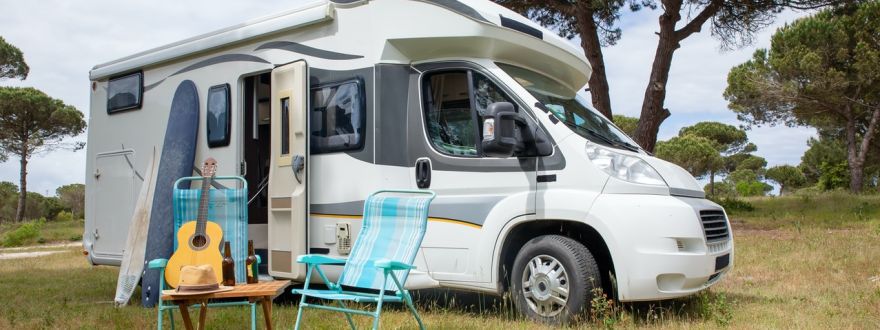
If you have recently purchased a RV you may be curious about what is covered by RV insurance. Well, some of the same coverages that are available for automobiles may also be available for RVs, and it would benefit you to inquire about specific details to insurance providers.
To get you started, check out the following coverage options that may be included in a typical RV insurance policy.
Comprehensive Coverage
Something other than a collision can also cause damage. If your RV is destroyed by hail or fire, comprehensive coverage may be able to help cover the costs of repairs.
Comprehensive coverage may also assist cover to water damage to your RV or goods permanently installed in it in specific circumstances. To find out what sorts of water damage your policy covers, read your policy or call your agent.
Coverage for Collisions and Medical Expenses
This coverage can help cover the cost of repairing or replacing your RV if it is wrecked in an accident with another vehicle or object. Collision coverage may include the RV’s physical structure as well as built-in accessories such as sinks or a permanently mounted television.
In addition, medical expenses coverage reimburses you or your passengers for medical and burial expenses incurred as a consequence of an accident.
Liability Protection
If you’re determined to be at fault for an accident that causes harm to someone else or their property, liability insurance may pay for the injured person’s medical expenditures. It can also pay for the cost of repairing their property.
Coverage of the Contents
RV insurance may only cover a portion of your personal belongings that you bring with you on the road. Check your policy to see whether it includes any content coverage.
Personal property coverage on your homes or renters insurance policy may assist covering your valuables while they’re in your RV.
Protection for Personal Injury
This form of coverage is only available if you live in a no-fault state. It may assist in paying expenditures such as medical bills, missed earnings, and funeral costs incurred because of a RV accident.
It’s vital to remember that each form of coverage has a limit. The most the policy will pay in the event of a covered loss. Before your coverage kicks in, you’ll almost certainly have to pay a deductible.
Some insurers may provide extra benefits like roadside assistance, coverage for a sound system installed by the manufacturer, or reimbursement for emergency travel expenditures if your RV is rendered unusable due to damage.
To learn what types of coverage are available to you and whether you have enough to meet your needs, read your policy or contact your agent.
When to Get a RV Insurance
A minimum limit of liability coverage is required in most states for RV owners. However, you may be compelled to carry other forms of coverage in some instances.
If you’re borrowing money to buy a RV, your lender may require you to keep comprehensive and collision insurance on the vehicle until it’s paid off.
While your home or auto insurance may only give limited coverage for a RV you rent rather than own, a temporary policy from the rental business may provide additional coverage in certain situations.
Conclusion
Before you start cruising the open road in your RV, make sure you read your policy or call your local agent to find out what it covers. This is so you can make sure you’re complying with any regulations that may exist.
If you need auto insurance for your RV, don’t hesitate to turn to Brand and Britt Insurance! We’re an independent insurance agency offering auto, car, home, life, business, and employee benefits insurance in Georgia. Contact us today to learn more.






